24 Hours In The Life Of A Homicide Detective
1. It starts with a very early wake up
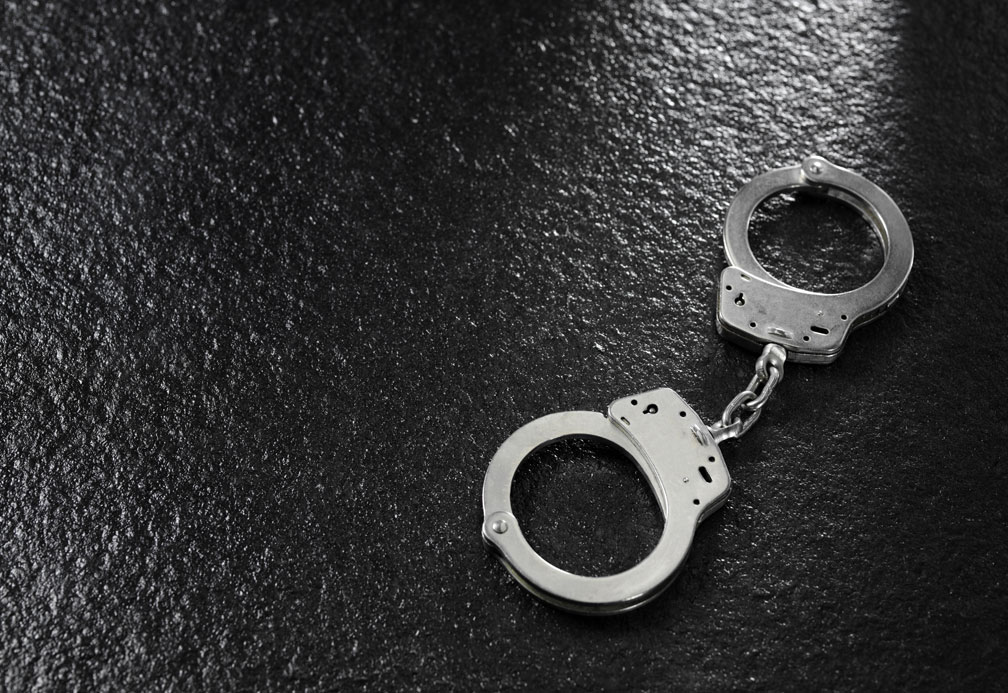 Image source/ PinterestThe day starts for a homicide detective much like anyone else - wake up and get to work. This is pretty much the only part of the day which mimics any other job because apart from the early wake up, shower, and grabbing a coffee - the similarities definitely end here.
Image source/ PinterestThe day starts for a homicide detective much like anyone else - wake up and get to work. This is pretty much the only part of the day which mimics any other job because apart from the early wake up, shower, and grabbing a coffee - the similarities definitely end here.Advertisement
2. Going undercover
 Image source/ blogpostYou get into your unmarked vehicle, and in your own clothes. Two big differences about being a patrol officer and a detective. Of course, your car is one that people will not suspect is a cop car - otherwise you've already defeated the objective.
Image source/ blogpostYou get into your unmarked vehicle, and in your own clothes. Two big differences about being a patrol officer and a detective. Of course, your car is one that people will not suspect is a cop car - otherwise you've already defeated the objective.Advertisement
3. Reviewing evidence first thing
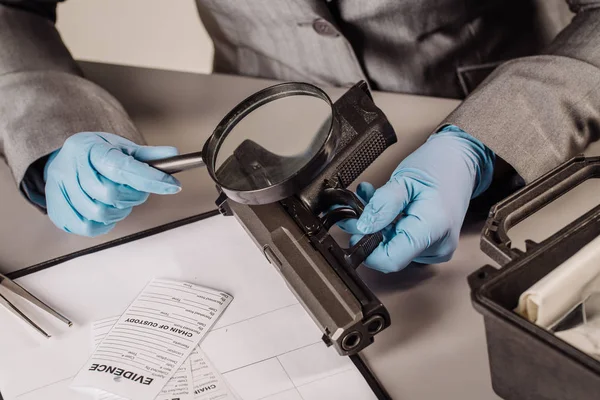 Image source/ rinkleNow, you get into the office and check your voicemails. Voicemails, which aren't anything like you find in another job. These could be from the murder victim's family, or someone with a new lead. It really could be anything which this job is all about - the unexpected.
Image source/ rinkleNow, you get into the office and check your voicemails. Voicemails, which aren't anything like you find in another job. These could be from the murder victim's family, or someone with a new lead. It really could be anything which this job is all about - the unexpected.Advertisement
4. Planning the day ahead
 Image source/ sciencephotolibraryWell of course, each day can look entirely different. But, in homicide cases, often there are multiple people to interview. So, one day you may have a suspect to interview along with a few witnesses all of whom need to be interviewed.
Image source/ sciencephotolibraryWell of course, each day can look entirely different. But, in homicide cases, often there are multiple people to interview. So, one day you may have a suspect to interview along with a few witnesses all of whom need to be interviewed.Advertisement
5. Interviewing the murder suspect
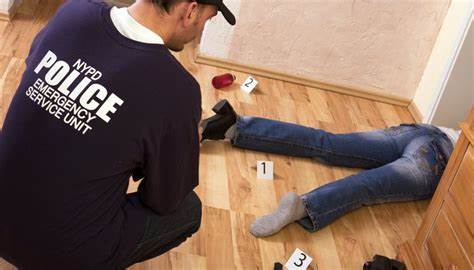 Image source/ sasadoctorOf course, it is common in the first interview with a suspect for then to decline talking on their lawyer's advice or because they already know that they don't want to say anything that could incriminate them. But, perhaps after a while they are ready to talk, and this means it is time to try and develop holes in their story.
Image source/ sasadoctorOf course, it is common in the first interview with a suspect for then to decline talking on their lawyer's advice or because they already know that they don't want to say anything that could incriminate them. But, perhaps after a while they are ready to talk, and this means it is time to try and develop holes in their story.Advertisement
6. And interviewing witnesses of the murder...
 Image source/ blogspotWhen interviewing witnesses, it means that you have to find out as much information as possible that could help you solve the case and developed enough evidence to collect a solid file on who the culprit is. This can be emotionally challenging for the suspect and so you have to tread carefully.
Image source/ blogspotWhen interviewing witnesses, it means that you have to find out as much information as possible that could help you solve the case and developed enough evidence to collect a solid file on who the culprit is. This can be emotionally challenging for the suspect and so you have to tread carefully.Advertisement
7. Reviewing all the evidence is gruesome
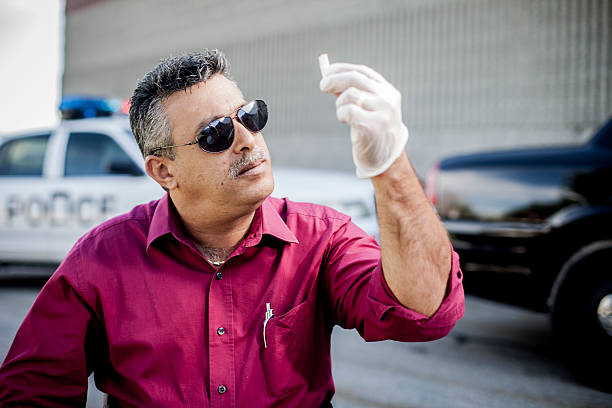 Image source/ freelibraryThe majority of the day is spent going over evidence, this may be photos or previous interviews. Now let's not forget that these can be extremely gruesome things. Especially in a murder investigation these things are always very messy and intricate and so they need reviewing over and over.
Image source/ freelibraryThe majority of the day is spent going over evidence, this may be photos or previous interviews. Now let's not forget that these can be extremely gruesome things. Especially in a murder investigation these things are always very messy and intricate and so they need reviewing over and over.Advertisement
8. There are multiple murder cases at one time
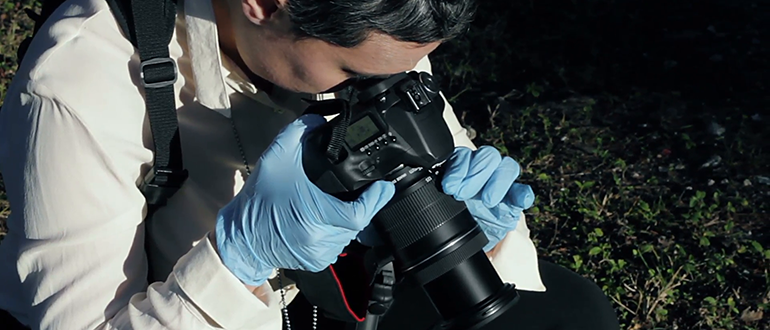 Image source/ RedditAnd of course, this homicide investigation is not the only one you are dealing with. You have multiple cases at once. You may also be chasing up evidence on a previous murder investigation in which you are waiting for DNA analysis or fingerprint examinations.
Image source/ RedditAnd of course, this homicide investigation is not the only one you are dealing with. You have multiple cases at once. You may also be chasing up evidence on a previous murder investigation in which you are waiting for DNA analysis or fingerprint examinations.Advertisement
9. Carrying out the new interviews
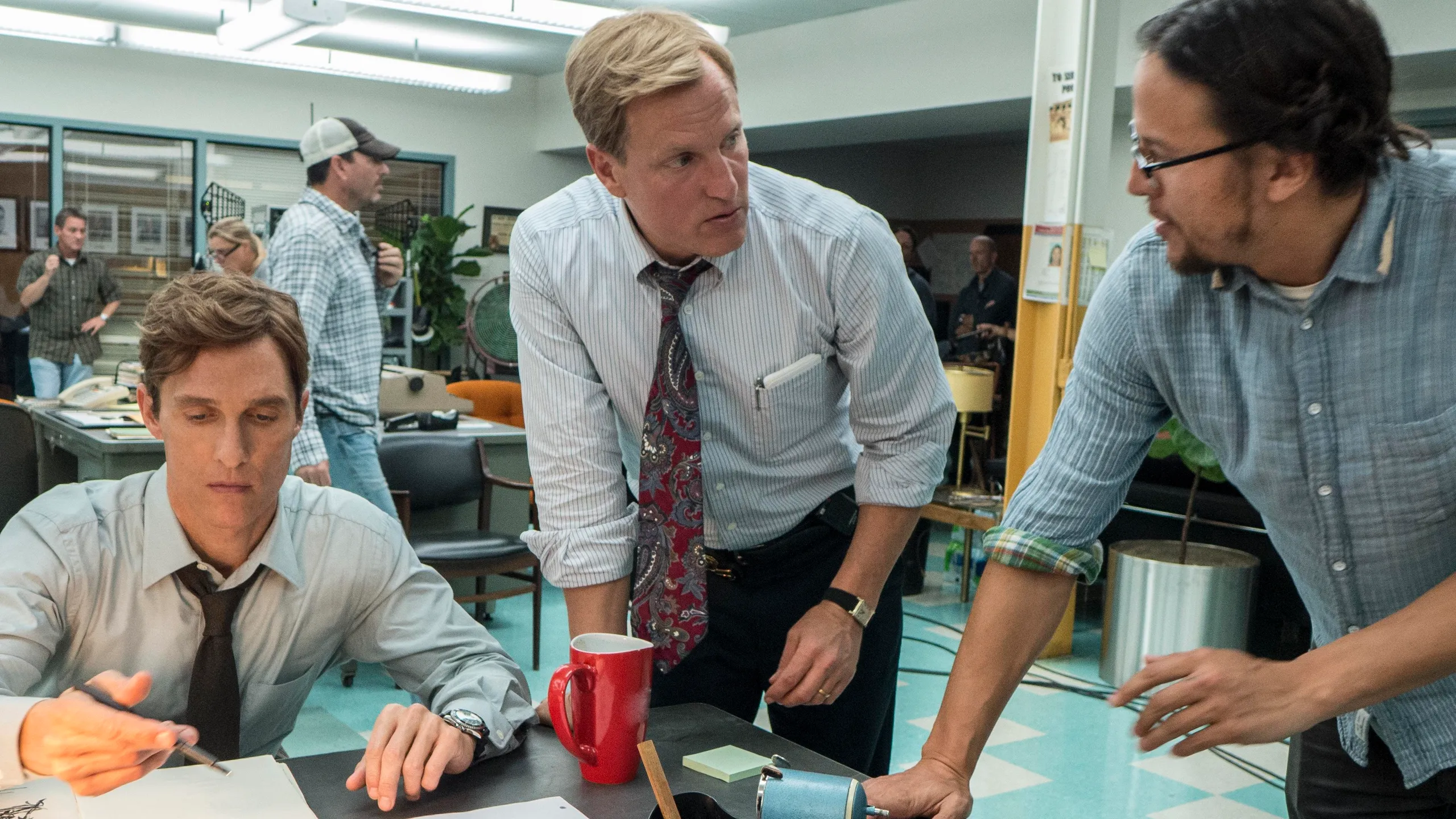 Image source/ fccmomentumNow you go and interview the witnesses. A lot of the information you already knew from the case of course, but there are usually a couple of new bits of evidence. And these really make all the difference in bringing the case alone. Sometimes people remember new things or have clarity after the traumatic experience has settled.
Image source/ fccmomentumNow you go and interview the witnesses. A lot of the information you already knew from the case of course, but there are usually a couple of new bits of evidence. And these really make all the difference in bringing the case alone. Sometimes people remember new things or have clarity after the traumatic experience has settled.Advertisement
10. Contradictory interviews and evidence
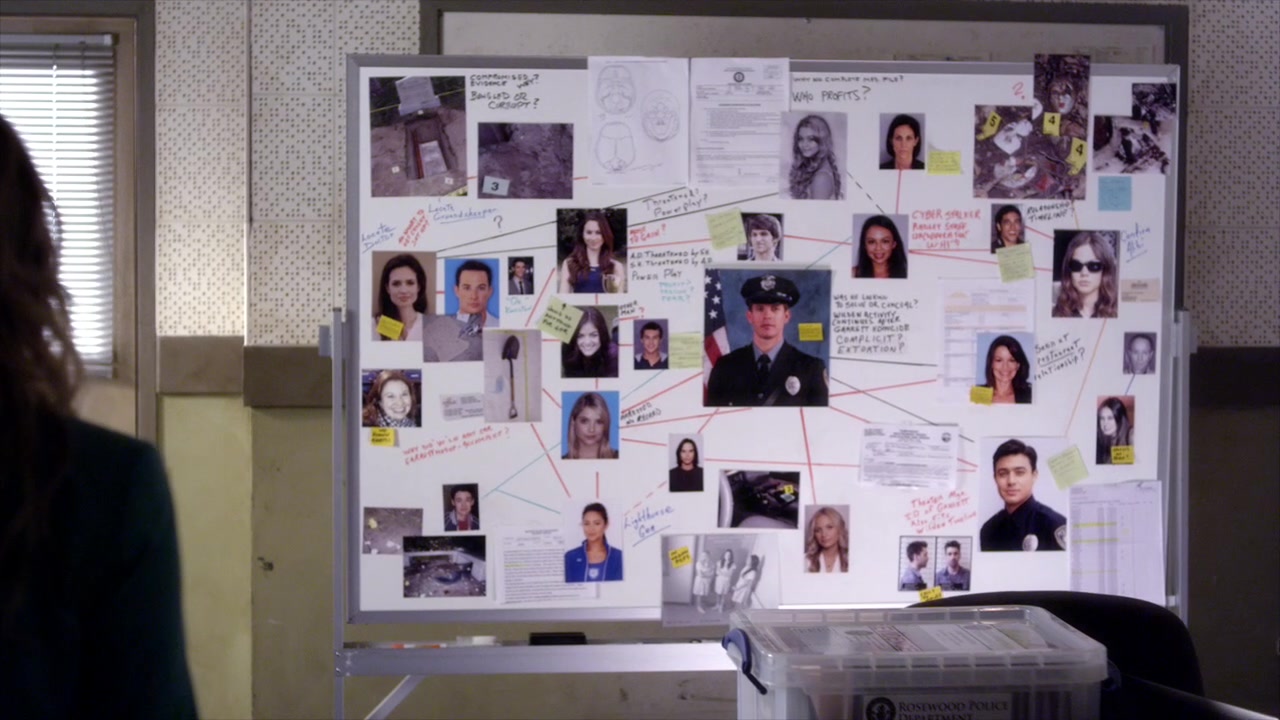 Image source/ siouxcityjournalUnfortunately, it often happens where some of the witness statements contradict one another. It is a common occurrence that the witnesses sometime after the event will try to make sense of what happened, and their mind will adjust the events so that it is understandable to them. So, a common job is sifting through reality and the altered version.
Image source/ siouxcityjournalUnfortunately, it often happens where some of the witness statements contradict one another. It is a common occurrence that the witnesses sometime after the event will try to make sense of what happened, and their mind will adjust the events so that it is understandable to them. So, a common job is sifting through reality and the altered version.Advertisement
11. Reassessing evidence before the suspect meeting
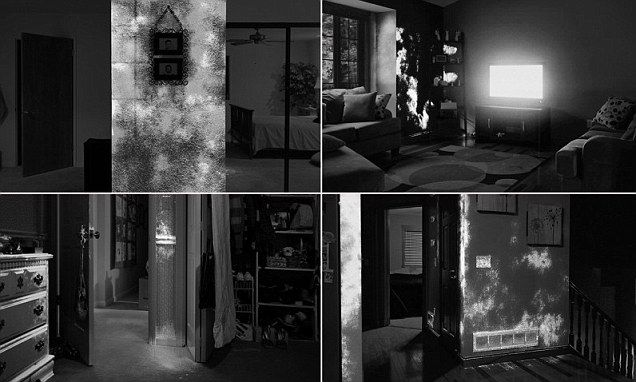 Image source/ weheartvintageSo, with this new information and evidence they will review it over and over before going into the suspect interview with more to say and more to probe. So, you prepare some tactics and a line of questioning which you are going to use as soon as you arrive at the suspect's attorney's office.
Image source/ weheartvintageSo, with this new information and evidence they will review it over and over before going into the suspect interview with more to say and more to probe. So, you prepare some tactics and a line of questioning which you are going to use as soon as you arrive at the suspect's attorney's office.Advertisement
12. The murder suspect's alibi
 Image source/ salonOf course, the suspect has been prepped by his lawyer in what to say, what not to say and how to answer or when to avoid completely. They will also provide an alibi to try and excuse their crimes. Yet, after meeting with the witnesses this can be used to contradict it. Of course, this is not always the case.
Image source/ salonOf course, the suspect has been prepped by his lawyer in what to say, what not to say and how to answer or when to avoid completely. They will also provide an alibi to try and excuse their crimes. Yet, after meeting with the witnesses this can be used to contradict it. Of course, this is not always the case.Advertisement
13. Playing the right cards
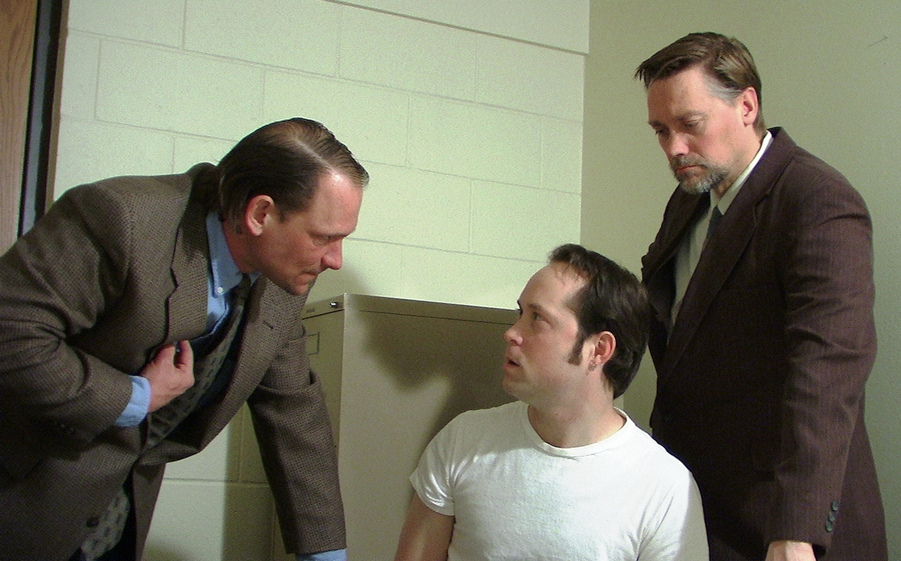 Image source/ AllthatsinterestingYou can't go in there and start revealing everything you know. You have to do it wisely, to show that you have evidence against them and witnesses but not reveal too much and you must be careful not to reveal what you do not know yet. if you can contradict the alibi this might be saved until later.
Image source/ AllthatsinterestingYou can't go in there and start revealing everything you know. You have to do it wisely, to show that you have evidence against them and witnesses but not reveal too much and you must be careful not to reveal what you do not know yet. if you can contradict the alibi this might be saved until later.Advertisement
14. Back to review the suspect's interview
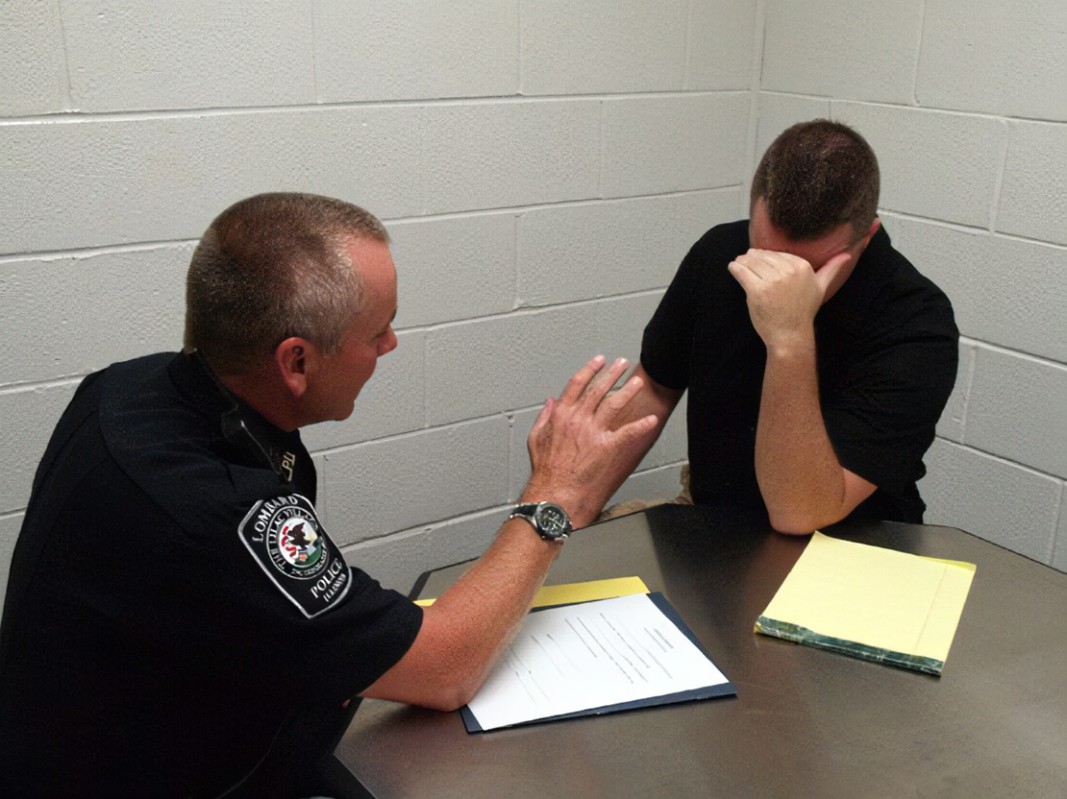 Image source/ sasadoctorAfter the interview you then drop the interview role and tell the suspect you are exhausting all of the leads on the case. Then, you drive back to the office where you now have more evidence to run through and an interview to go over again and again.
Image source/ sasadoctorAfter the interview you then drop the interview role and tell the suspect you are exhausting all of the leads on the case. Then, you drive back to the office where you now have more evidence to run through and an interview to go over again and again.Advertisement
15. Getting a search warrant
 Image source/ Huff PostNow, once you are back at the office, you'll want to send for a search warrant to the district attorney's office and wait to hear back so that you can go down a new line of enquiry. This search could provide you with a whole bunch of new evidence and maybe even some DNA.
Image source/ Huff PostNow, once you are back at the office, you'll want to send for a search warrant to the district attorney's office and wait to hear back so that you can go down a new line of enquiry. This search could provide you with a whole bunch of new evidence and maybe even some DNA.Advertisement
16. It takes a HUGE emotional toll
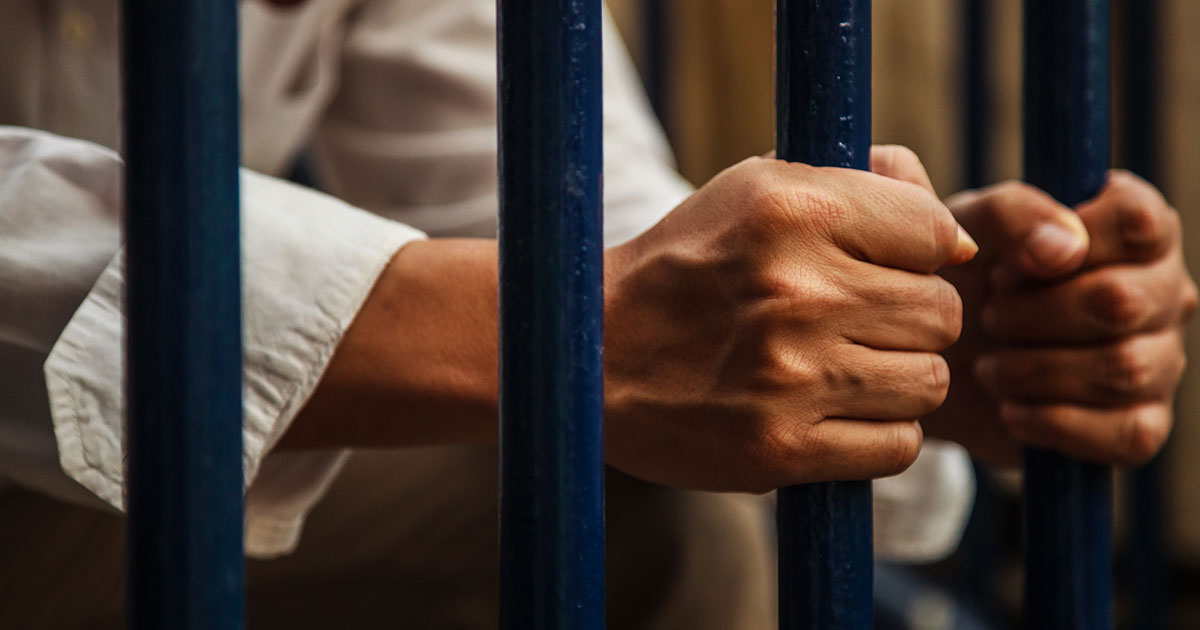 Image source/ The MirrorWhen typing, it is hard to convey the emotional toll of the job. But when you're a homicide detective or a police detective you see and investigate things that stay with you forever. Sometimes, the victims are just little kids. There's no expressing how emotional that is.
Image source/ The MirrorWhen typing, it is hard to convey the emotional toll of the job. But when you're a homicide detective or a police detective you see and investigate things that stay with you forever. Sometimes, the victims are just little kids. There's no expressing how emotional that is.Advertisement
17. It's extremely intense
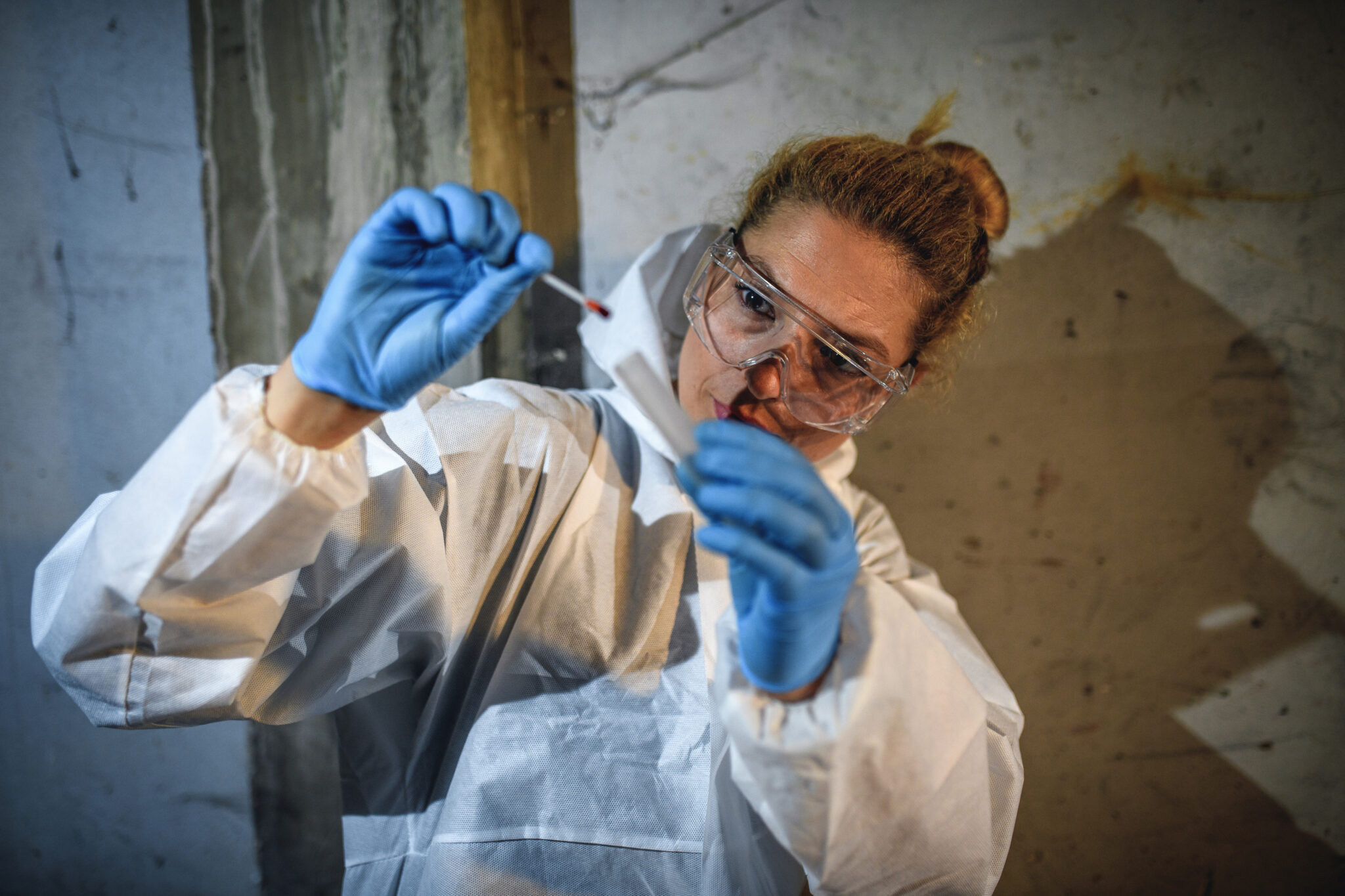 Image source/ blogspotIn the first 24 hours of a case things are their most intense. Because if we have a murder case time really is of the essence and so we have to work as fast as possible. So, in the first 24 hours there's very little sleep because things like crime scenes and witnesses are essential to check as soon as possible.
Image source/ blogspotIn the first 24 hours of a case things are their most intense. Because if we have a murder case time really is of the essence and so we have to work as fast as possible. So, in the first 24 hours there's very little sleep because things like crime scenes and witnesses are essential to check as soon as possible.Advertisement
18. The first 24 hours are crucial
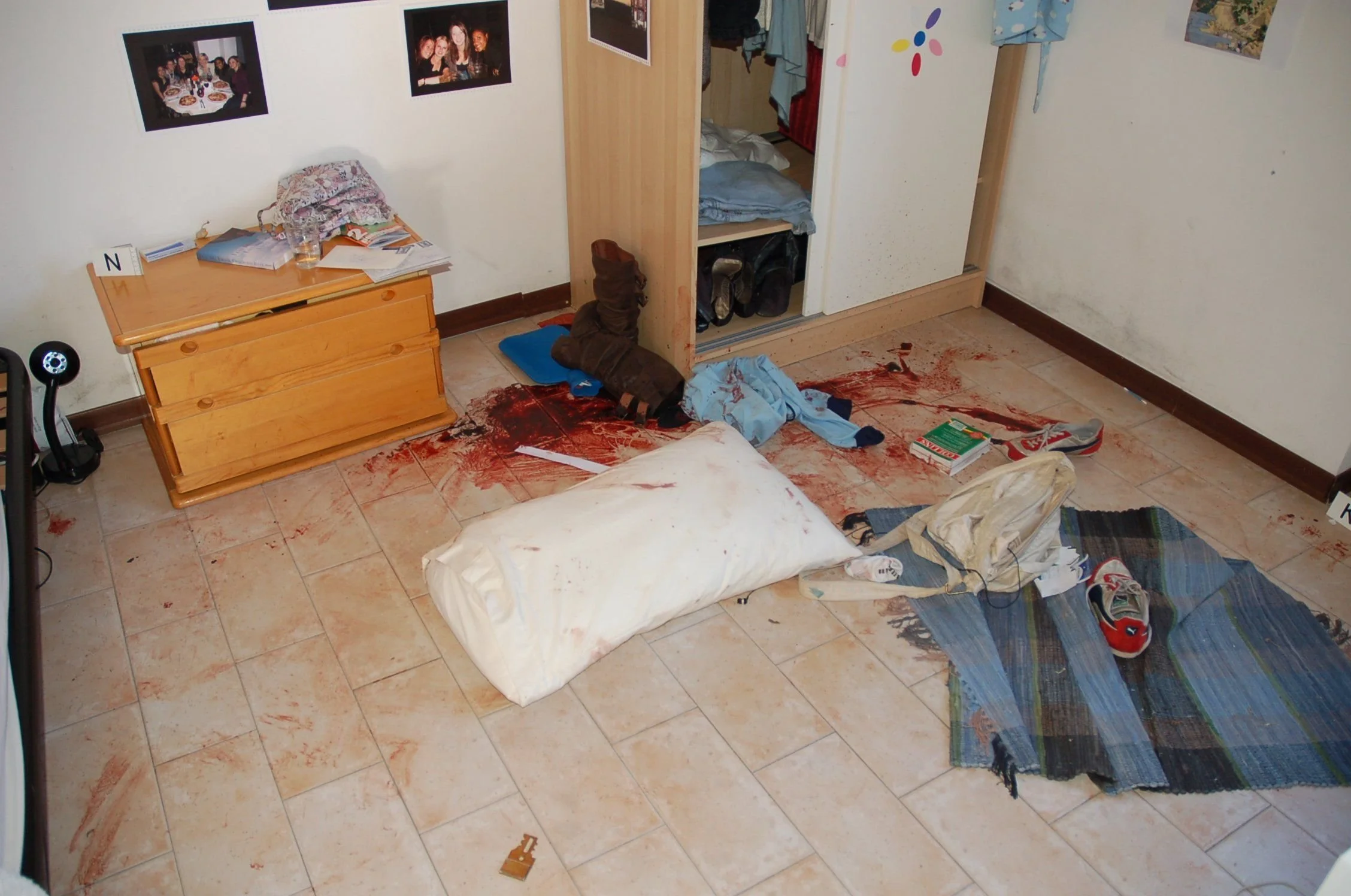 Image source/ redditThen, after the first 24 hours of a new murder case you are then back to juggling multiple cases at once. And then, you have to follow the leads and work in terms of priority of what leads have to be followed up.
Image source/ redditThen, after the first 24 hours of a new murder case you are then back to juggling multiple cases at once. And then, you have to follow the leads and work in terms of priority of what leads have to be followed up.Advertisement
19. When leads dry up
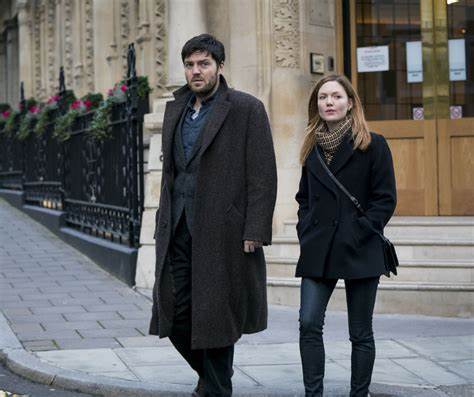 Image source/ Allthat'sinterestingYou only stop working a case until every last lead has dried up and there is no new evidence to assess. At any one time you can have some cases being prepared for court, some cases which are already amin the trial process and some which are still having evidence gathered or followed up.
Image source/ Allthat'sinterestingYou only stop working a case until every last lead has dried up and there is no new evidence to assess. At any one time you can have some cases being prepared for court, some cases which are already amin the trial process and some which are still having evidence gathered or followed up.Advertisement
20. Using the equipment
 Image source/ esquireWhen you're on call there will be cars available to you 24-hours a day so that you can enter safely into a crime scene and be driven to it with the necessary equipment in the car. Such as police tape, logbooks to note down times and information and exhibit bags to collect any evidence from the crime scene.
Image source/ esquireWhen you're on call there will be cars available to you 24-hours a day so that you can enter safely into a crime scene and be driven to it with the necessary equipment in the car. Such as police tape, logbooks to note down times and information and exhibit bags to collect any evidence from the crime scene.Advertisement
21. Complexities of murder
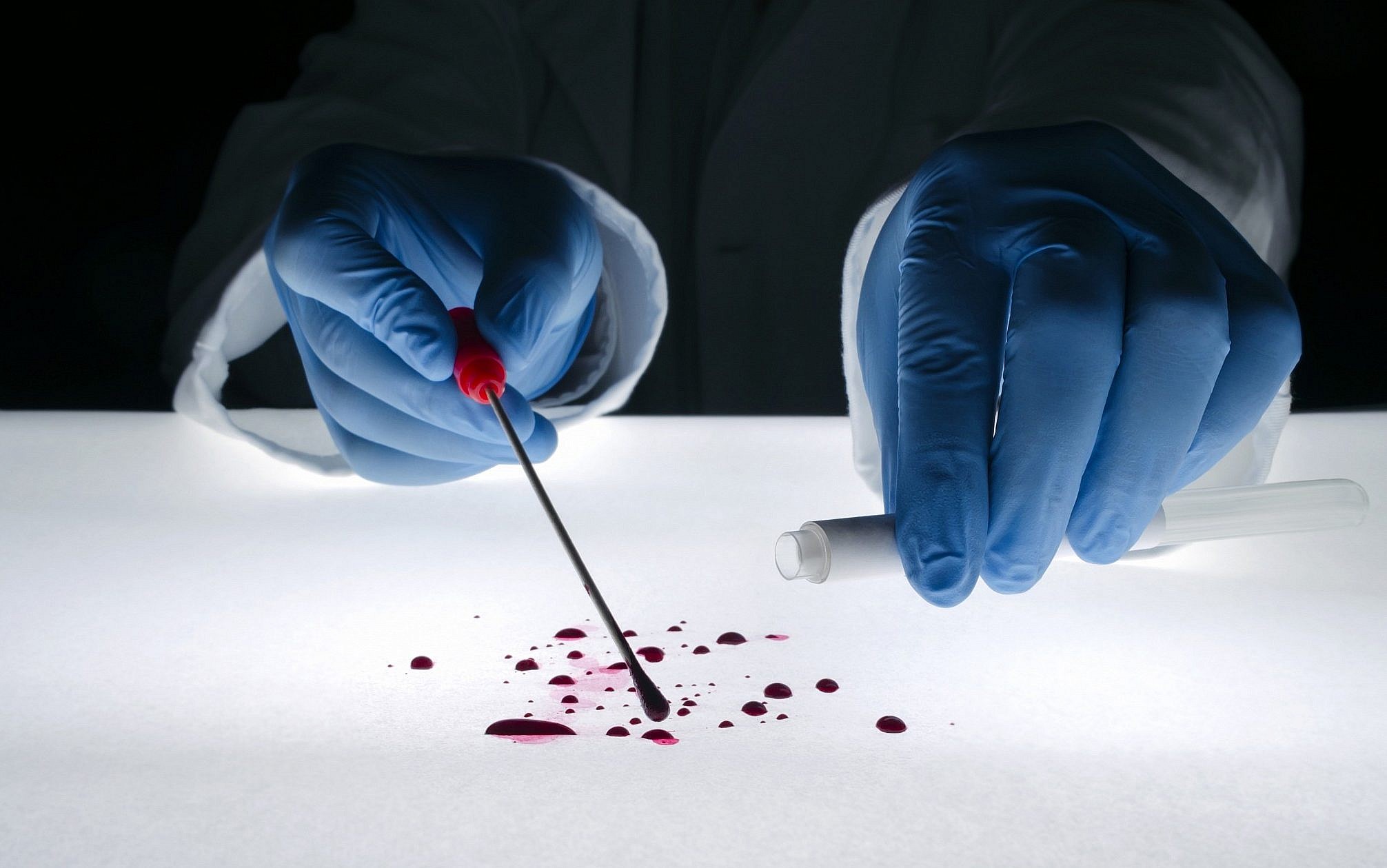 Image source/ RedditWhen you're investigating murders, the cases are always complex and messy. There are multiple ways that people are murdered which include brutal things such as guns, ropes, poison, knives. As a homicide detective you see everything, the most horrific things.
Image source/ RedditWhen you're investigating murders, the cases are always complex and messy. There are multiple ways that people are murdered which include brutal things such as guns, ropes, poison, knives. As a homicide detective you see everything, the most horrific things.Advertisement
22. Searching through hundreds of people
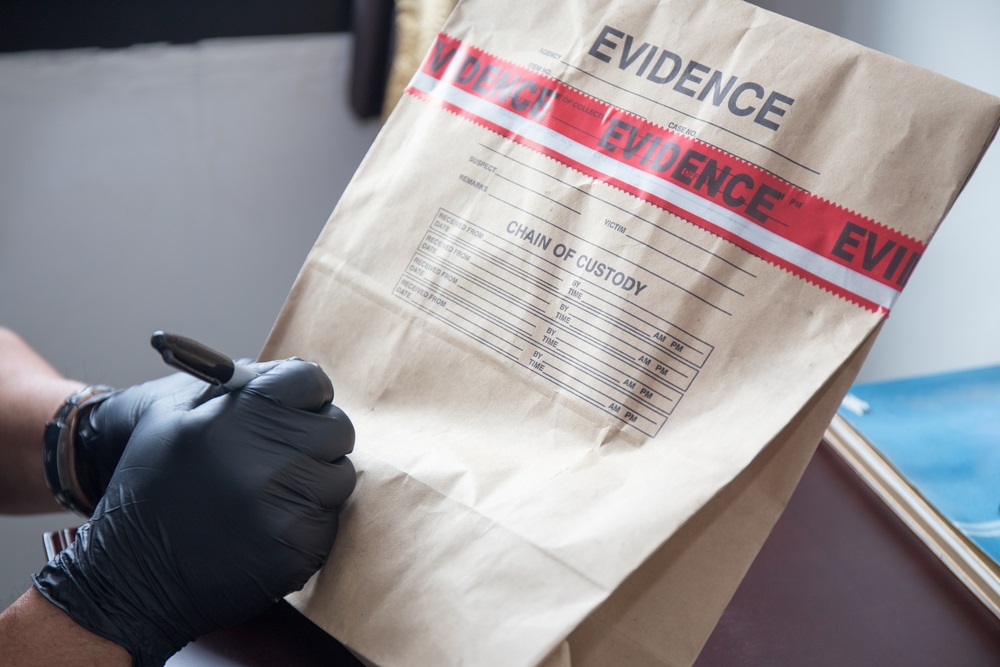 Image source/ UNSWSome murders which happen leave such a huge scope for investigation. For example, some murders happen near night clubs - meaning that the entire club has to be tracked down and put on the witness list to be able to question them about the events of that night and leading up to it as well as after. Or it could mean the entire lake needs to be searched...
Image source/ UNSWSome murders which happen leave such a huge scope for investigation. For example, some murders happen near night clubs - meaning that the entire club has to be tracked down and put on the witness list to be able to question them about the events of that night and leading up to it as well as after. Or it could mean the entire lake needs to be searched...Advertisement
23. Helping to solve the case
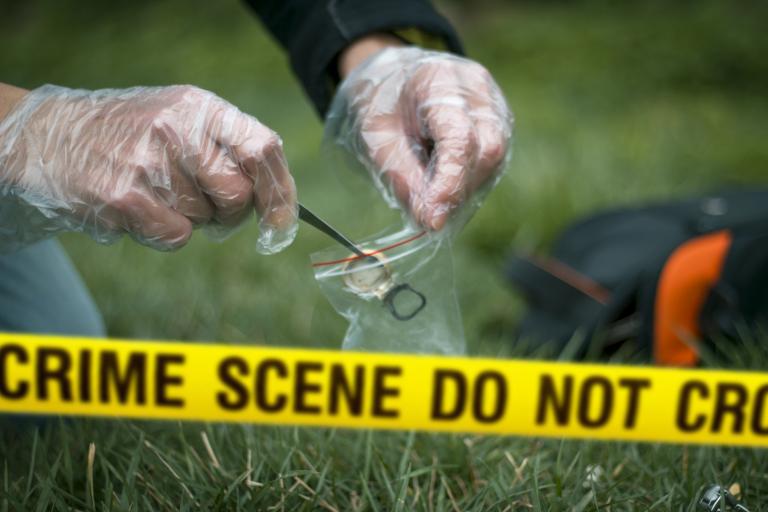 Image source/ MetroSometimes we have to borrow people from different teams if we have too many cases and we also have to work with other people from a variety of different roles. For example, liaison officers who deal with the family of the victim and look after them while helping them through the process of the investigation.
Image source/ MetroSometimes we have to borrow people from different teams if we have too many cases and we also have to work with other people from a variety of different roles. For example, liaison officers who deal with the family of the victim and look after them while helping them through the process of the investigation.Advertisement
24. Working with liaison officers
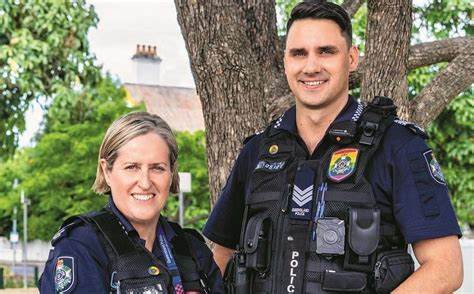 Image source/ DailynewsThey also really help us because they talk with and get to know the victim's family members which really helps us to paint a picture of who the victim is which can help us in the investigation and help us understand their mindset and situation at the time as well as who their friends/ people they dislike are etc.
Image source/ DailynewsThey also really help us because they talk with and get to know the victim's family members which really helps us to paint a picture of who the victim is which can help us in the investigation and help us understand their mindset and situation at the time as well as who their friends/ people they dislike are etc.Advertisement
25. There's a lot of big meetings
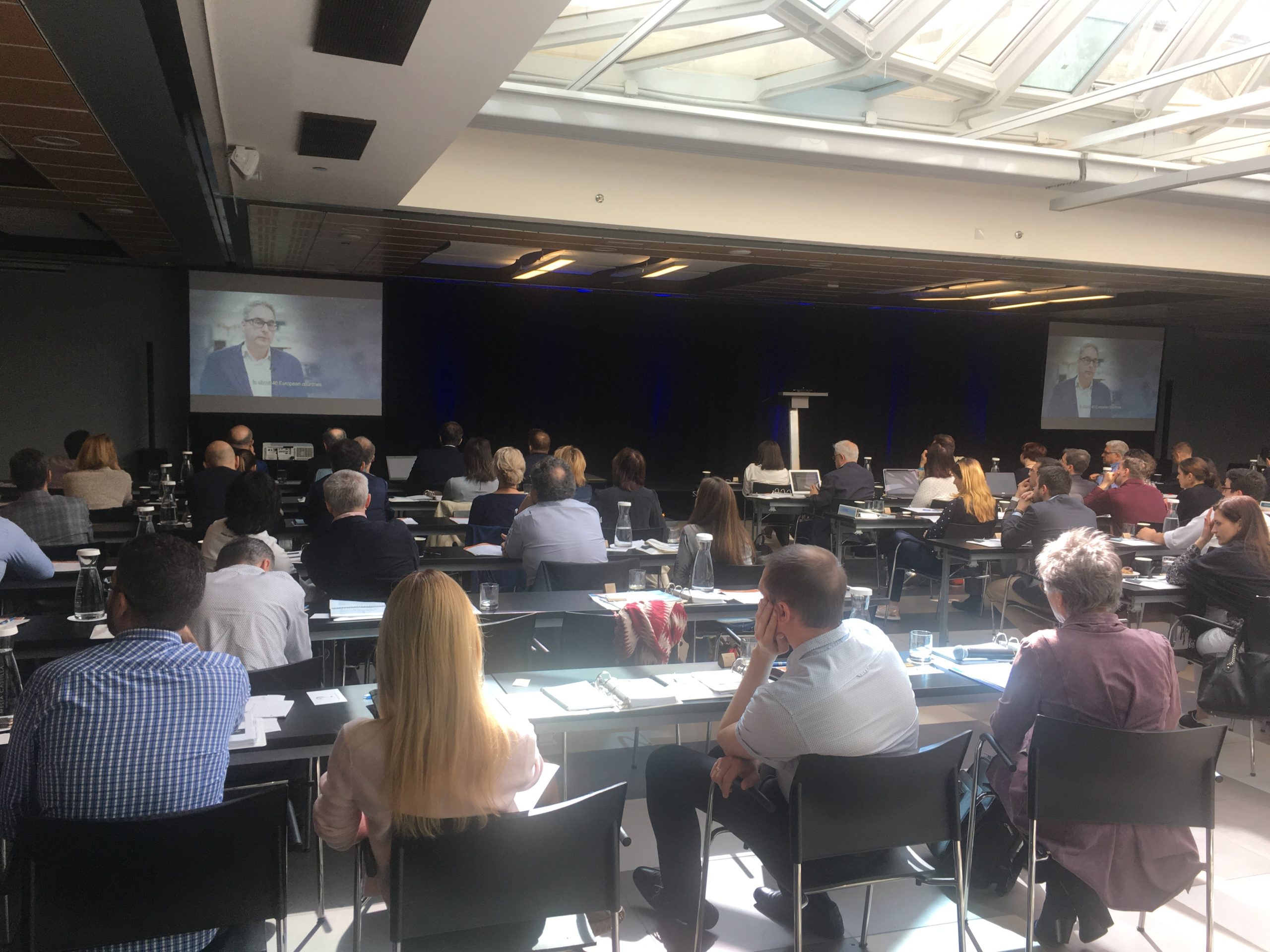 Image source/ i-tronWe also have a lot of meetings with other people on the case as well as those above us, to understand what we are looking for better especially if the case is big. For example, if we are working on the murder of a serial killer case, the project is big, and we have to report regularly.
Image source/ i-tronWe also have a lot of meetings with other people on the case as well as those above us, to understand what we are looking for better especially if the case is big. For example, if we are working on the murder of a serial killer case, the project is big, and we have to report regularly.Advertisement
26. Working with a huge team, e.g., forensics
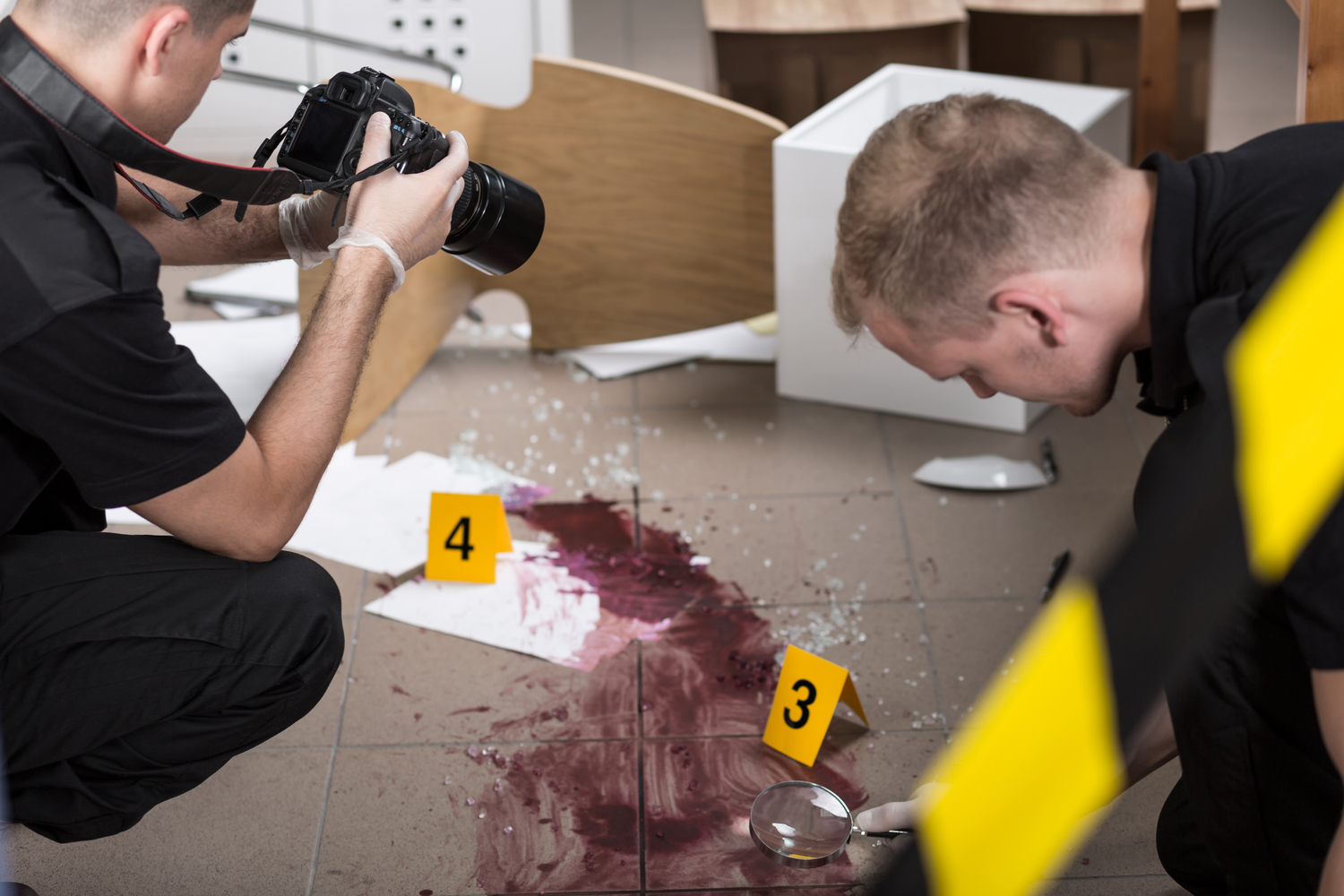 Image source/ HuffPostSometimes, depending on the case, we could be working with up to 20 detectives per case. This is because sometimes the case is huge and has to be covered by a variety of different people. There's also the forensic team with whom you of course work closely with for evidence.
Image source/ HuffPostSometimes, depending on the case, we could be working with up to 20 detectives per case. This is because sometimes the case is huge and has to be covered by a variety of different people. There's also the forensic team with whom you of course work closely with for evidence.Advertisement
27. You have to stay ultra-focused
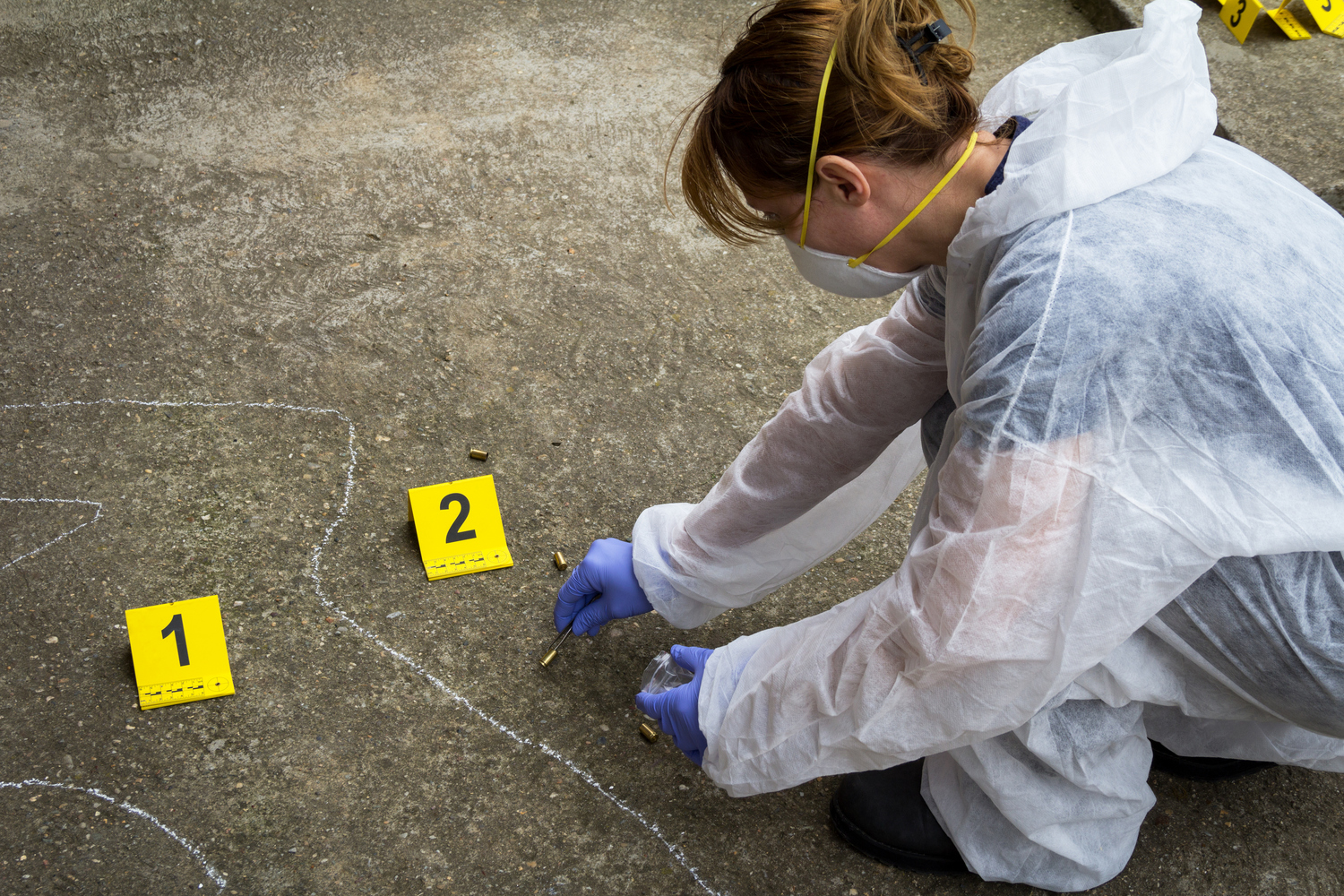 Image source/ blogspotIn this job there's no leeway for not being on the ball one day or having an off day. Each day and each bit of information is vital and can be the differe4cne between solving a case. We always have to stay super focused and piece together tiny little bits of information from various sources.
Image source/ blogspotIn this job there's no leeway for not being on the ball one day or having an off day. Each day and each bit of information is vital and can be the differe4cne between solving a case. We always have to stay super focused and piece together tiny little bits of information from various sources.Advertisement
28. Finally getting home
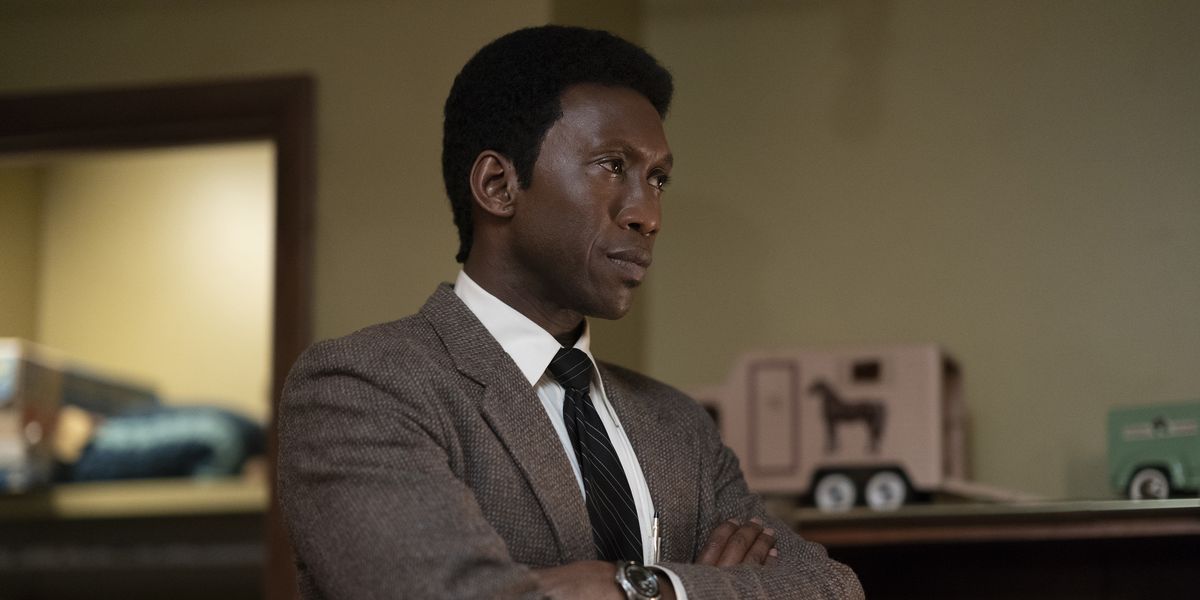 Image source/ esquireOf course, once you do finally get home after a long and gruelling day, you're still on call, so the day may not truly be done. And sleep isn't always easy when you have images in your mind - images of the victim as well as the victim's family. And the knowledge that there are murderers out there waiting to be caught.
Image source/ esquireOf course, once you do finally get home after a long and gruelling day, you're still on call, so the day may not truly be done. And sleep isn't always easy when you have images in your mind - images of the victim as well as the victim's family. And the knowledge that there are murderers out there waiting to be caught.Advertisement
29. ...But it's hard to sleep
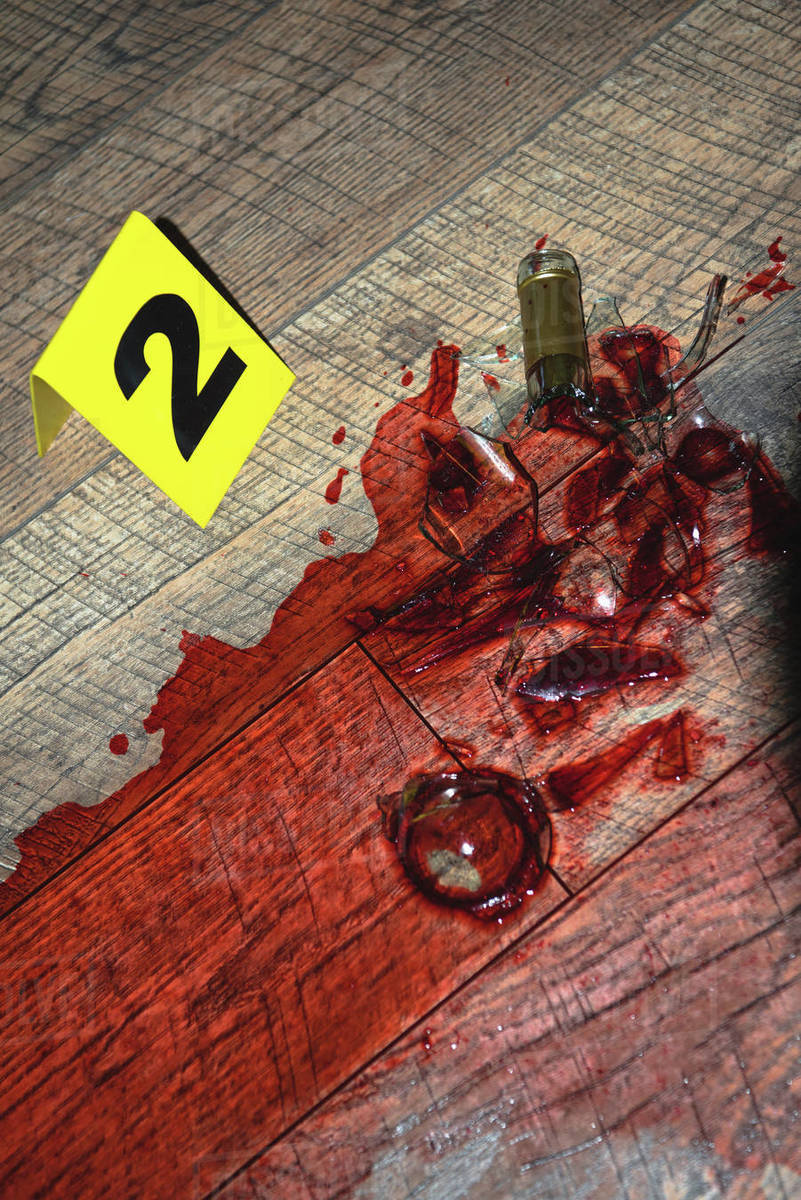 Image source/ starbizSome days, the phone rings at the middle of the night - all hours, be it one, two or five in the morning. Being a detective will not wait. When you get the call, you grab your notepad which you always keep by and take down the notes. Then it all starts again.
Image source/ starbizSome days, the phone rings at the middle of the night - all hours, be it one, two or five in the morning. Being a detective will not wait. When you get the call, you grab your notepad which you always keep by and take down the notes. Then it all starts again.Advertisement
30. Always ready in case of another murder
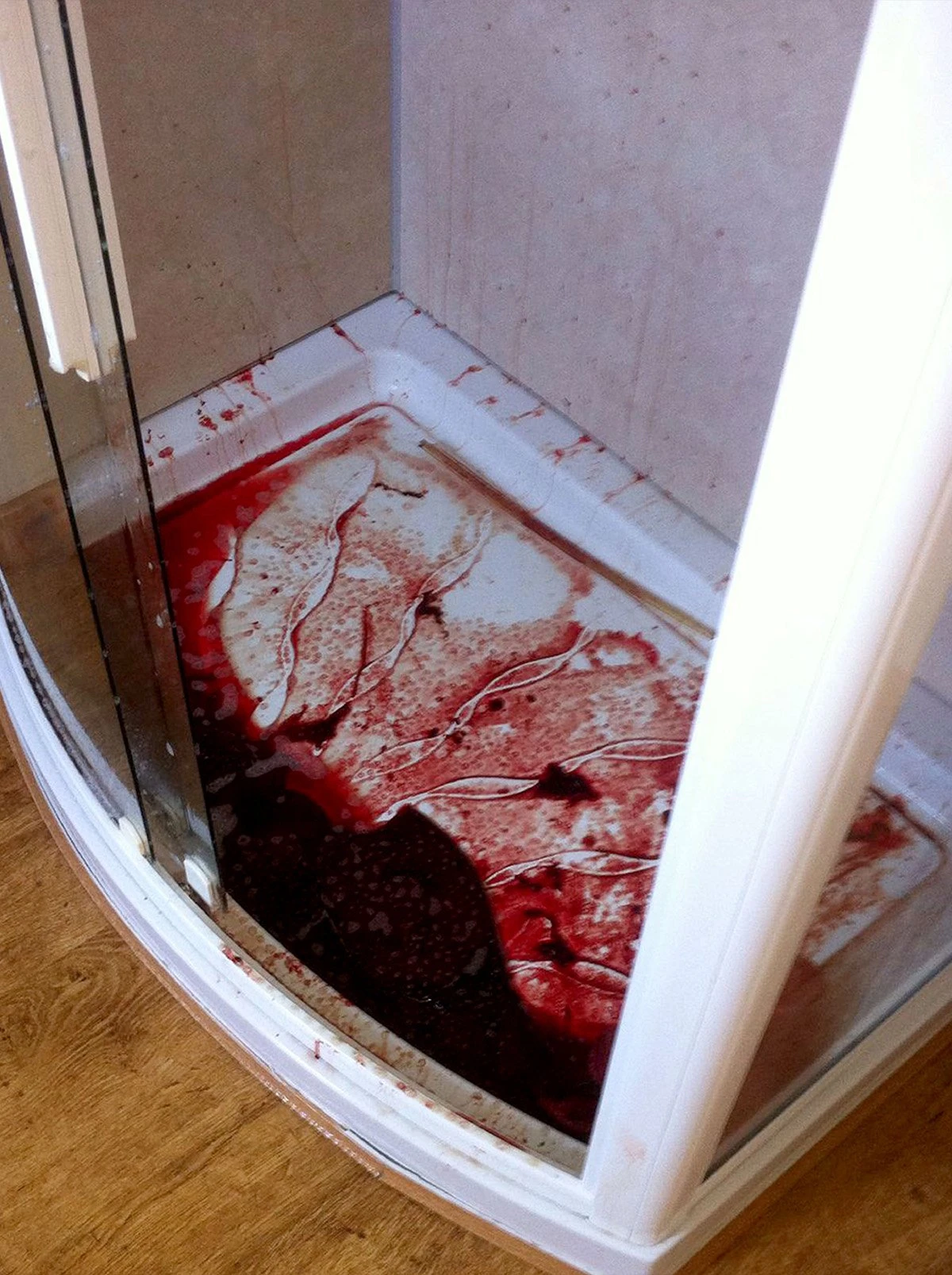 Image source/ esquireBeing on call depends on various factors. You are part of a unit which is made up of teams. And so, when it's your turn you always have to be ready with your phone on loud in case there is a suspicious death reported. You may end up on 24-hour call for days on end at some points - there's really not much sleep then.
Image source/ esquireBeing on call depends on various factors. You are part of a unit which is made up of teams. And so, when it's your turn you always have to be ready with your phone on loud in case there is a suspicious death reported. You may end up on 24-hour call for days on end at some points - there's really not much sleep then.Advertisement